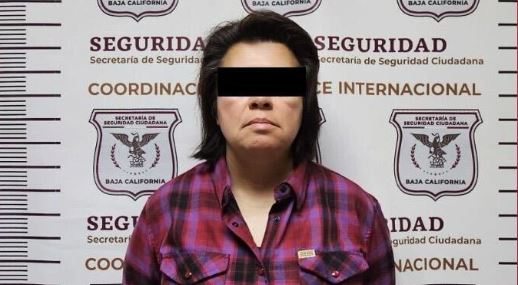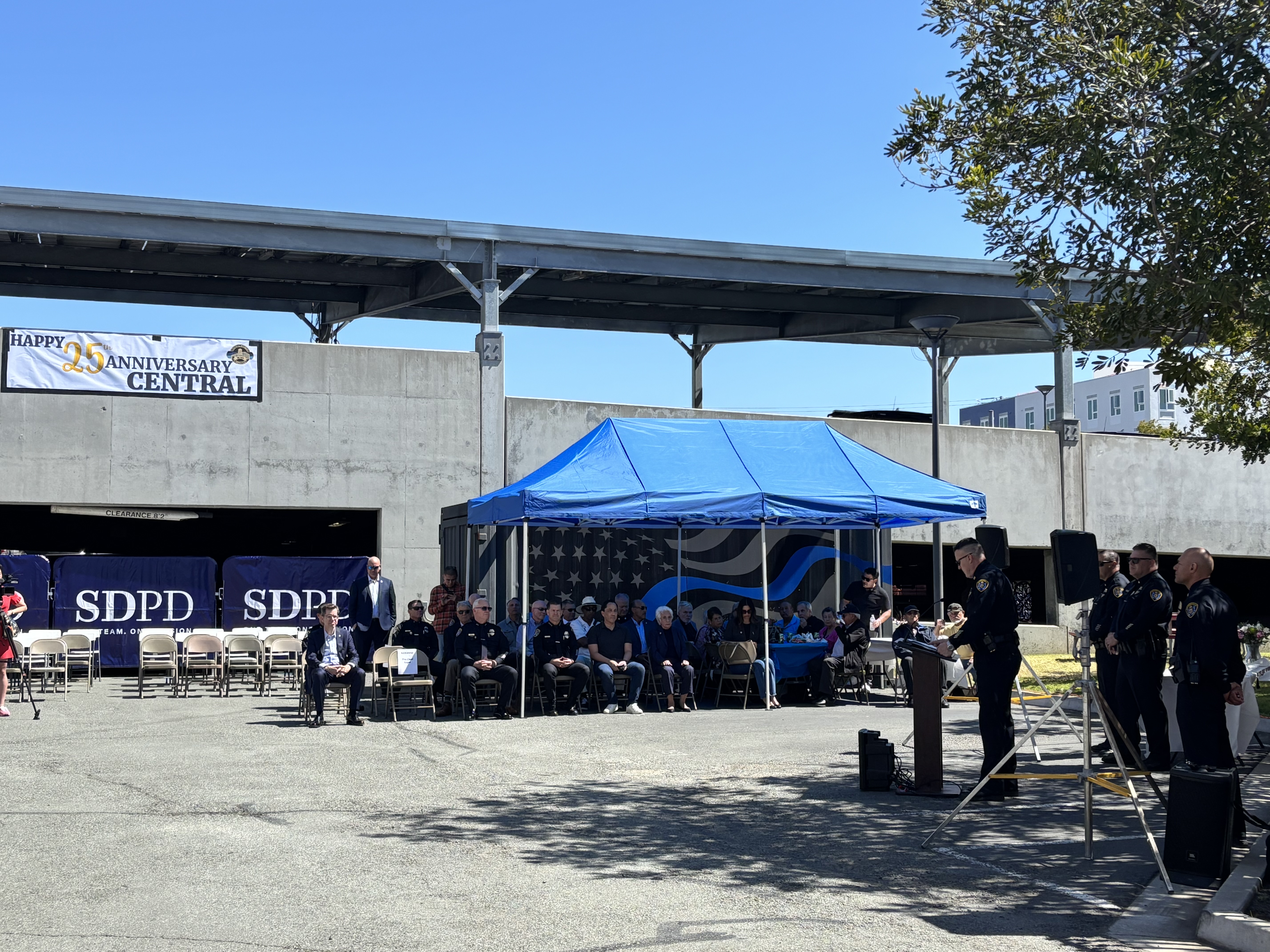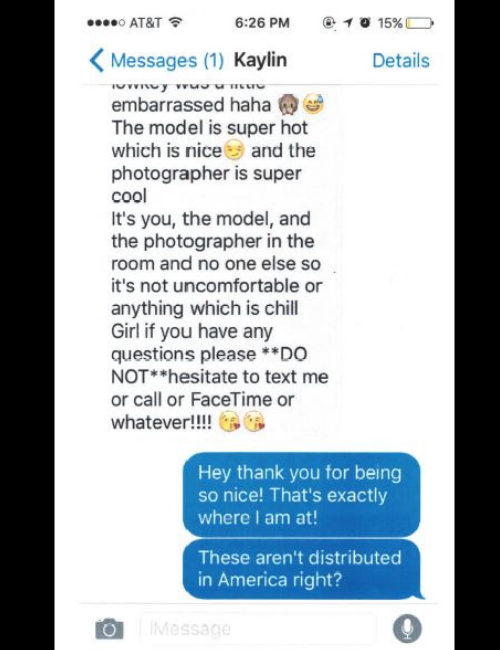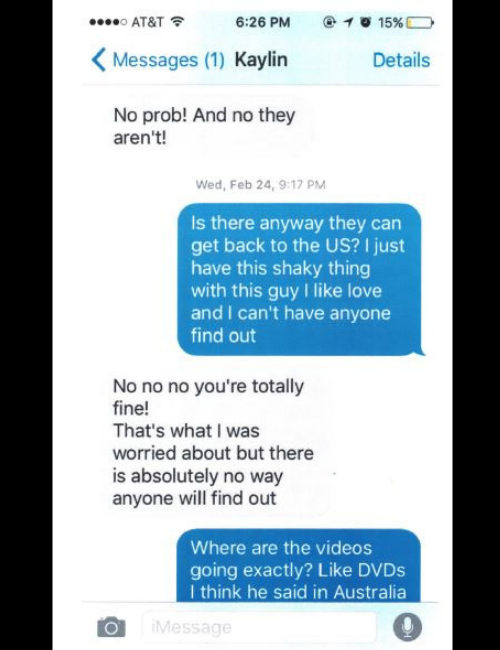NBC 7’s Investigates reporter Mari Payton spoke to women victimized by a scheme they say tricks girls into filming porn for mass consumption.
A San Diego based company is accused of making millions of dollars by coercing young women into having sex on camera.
For many of the women, including some who spoke to NBC 7 Investigates, their experience ended with thoughts of suicide, humiliation, and isolation from family and friends.
Nearly two dozen women say what started with a response to a modeling ad on Craigslist ended with videos of them having sex posted to some of the most popular porn websites in the world, according to a lawsuit filed against the company.
They say the three owners of the website Girls Do Porn set up an elaborate scheme using fake names, reference girls paid to lie and promises that the videos would be sold to private collectors in Australia and New Zealand, according to the lawsuit.
In January, a State Court Judge issued a tentative ruling, stating the women’s allegations had shown that the men had likely “engaged in malice, fraud or oppression.”
An attorney for the company rejected the allegations, telling NBC 7 Investigates the women knew what they were signing up for ahead of time.
Attorneys for the women, however, say the scheme was hatched by owner Michael Pratt, co-owner and videographer Matthew Wolfe, and actor Ruben “Andre” Garcia to lure them into the world of amateur pornography.
Local
NBC 7 Investigates spoke to six women who are not plaintiffs in the case, all shared identical stories to what was laid out in the lawsuit. All six women agreed to speak with NBC 7 Investigates anonymously. None were part of the lawsuit, fearing it would cause more damage to their reputation or because they were past the statute of limitations.
How The Scheme Worked
According to court filings, the company posted modeling ads on Craigslist pages throughout the United States and Canada, linking back to one of three modeling websites: BeginModeling, ModelingGigs, and ModelingWork [dot] com.

The ads were posted on Craigslist pages throughout North America in places such as Gainesville, Florida; Waco, Texas; Orange County, California; in Calgary, Canada as well as in San Diego. The ads called for women, ages 18-to-22, to pose as swimsuit models.
“I had just turned 17 when I clicked on the ad,” said a Colorado woman, 23, speaking with NBC 7 Investigates. “It was definitely to broaden my shooting experience as I was trying to establish myself as a model.”
According to court documents, she was not the only girl that answered the ad before turning 18. A plaintiff in the case alleges she also communicated with the men while she was a minor, filming one day after her 18th birthday.
“[Pratt, Garcia, and Wolfe] recruited her to fly across country for a sex video when she was a minor,” the lawsuit states.
After the women clicked on the ad, they say they were asked to submit pictures as well as their contact information. Not long after a man, who according to court documents and former employees was Andre Garcia, contacted the women with new details about the nature of the shoot.
Garcia told the women that the modeling job had changed. It was no longer a bikini shoot but was an offer to make up to $6,000 if the women agreed to be filmed having sex on camera. The women say the man assured them that the videos would be sold to private collectors and would not be published online.
“They told me multiple times. What are the odds someone you know is going to walk into that one DVD store in Australia and choose that one DVD that you're on,” said one Southern California woman we interviewed.
It was then that Garcia put them in touch with a “reference girl” who was willing to verify everything.
The Reference Girls
“She told me it's going to be OK,” said one woman.
“[The Reference Girl] said, ‘They're nice. It's only going to be on DVDs in New Zealand and Australia and it's not allowed in America. And it's not that big of a deal. Just be a tough girl and it'll be over before you know it.’”
In regards to the reference girl, the woman from Colorado added, “The reference girl basically said that everything was legit, that it wasn't sex trafficking. It wasn't anything that I should be afraid of and that they made a lot of money doing that.”
All 22 women in the lawsuit shared similar stories. Their attorney, Brian Holm, told NBC 7 Investigates that he spoke to more than 120 women who said they were featured in Girls Do Porn videos.
A major part in convincing the women, says Holm, was the use of “reference girls.”
But according to court documents, the reference girls were hired to do anything necessary to get the women to agree. In a court declaration, one such reference girl Amber Clark said she and others were paid to lie to the young women.
“Garcia coached me on how to correspond with the prospective women, to gain their trust, even if that included telling lies and hiding information,” Clark stated in an August 2018 declaration. “Garcia instructed me to tell women the videos they filmed would never be released in the United State or on the internet.”
PHOTO: Text Messages Sent by Reference Girls
The reference women, according to Clark’s declaration and other court documents, were paid $25 to $200 for each girl they convinced to be featured in a video. The court filings said the amount of money that was paid to each reference girl depended on how attractive the women they convinced were.
“I don't think I would have followed through with it if she did not talk to me and text me and reassure me of her experience almost every other day,” said the Southern California woman.
In response to NBC 7 Investigates’ questions regarding the company’s use of reference girls, including the court declarations made by former employees, the company’s attorney, Aaron Sadock said, “How one former-employee interprets the motivation of the company or its attorneys should not be taken as the gospel.”
The Contracts and Videos
The women say when they agreed to the company’s conditions over the phone, they were then offered up to $6,000 for what the company said would be a 30-minute video shoot.

The men bought the women an airline ticket and booked rooms at four-star hotels throughout San Diego County including the Hotel del Coronado, the Kimpton Hotel, the Hard Rock Hotel, the Hilton Bayfront, and the La Valencia Hotel in La Jolla (NBC 7 Investigates reached out to the hotels listed in the lawsuit but the hotels did not respond, offered no comment or said they don't permit these kinds of activities.)
Upon arriving in San Diego, according to the women who spoke to NBC 7 Investigates and court documents, the women were picked up by employees for the company. Those employees were required to sign a non-disclosure agreement (NDA) forbidding them from making any mention of the Girls Do Porn website or the video’s distribution online.
According to her deposition, Val Moser worked as an Administrative Assistant for Girls Do Porn for more than three years. She said she was ”told specifically not to answer where the footage would end up,” even though she was aware the videos would be published online.
In response to NBC 7’s questions, Sadock said non-disclosure agreements are used, “in all types of businesses.”
When they arrived at the hotel, the women say they were given drugs and alcohol.
“We smoked and we drank from the second we got to the [location] until after we stopped shooting,” one of the women told NBC7 Investigates.
Before the video shoot started, the women said they were given a contract to sign with only minutes to review it ahead of time.
“The contract was the size of a good book and they rushed me through it,” said one woman in an interview. “They did not let me look at it for more than five minutes because they kept rushing me, saying, 'We're out of time, we're out of time.'”
According to the company’s attorney and court filings, the contract proves the women knew what they were getting into.
The women said the contract made no mention of the Girls Do Porn website.
“The models...all signed contracts agreeing to shoot pornographic videos and made statements on video agreeing the pornographic videos could be used in any manner the producer wished to use them,” Sadock told NBC 7 Investigates.
Once filming began, the women said the shoots lasted up to six or seven hours. The sex, they said, was painful and if they tried to stop, the men would tell them they wouldn’t be paid.
“I was in a room with two men and they both kind of teamed up on me and I didn't feel safe and like, I could leave on my own will,” a Southern California woman told NBC 7.
When the shoots ended, many said the men did not pay them the full amount they were promised.
Former employee Moser testified that 50-percent of the women complained to her that they did not receive the agreed upon amount.
“It was a devastating feeling,” said one woman. “I felt like I was lied to. I felt like I was definitely taken advantage of. I felt stupid even though I know it wasn't my fault for falling for something that was so well put together.”
“I felt humiliated, exhausted, drained, and I just sold my soul. It was the lowest point I've ever had,” the Southern California woman said.
The Aftermath
The women said a month or so after the shoots, the videos were posted on the Girls Do Porn website, as well as popular adult websites such as PornHub, the fourth most-visited website behind Wikipedia, Netflix, and Microsoft.
Holm said his research found all of the videos uploaded to PornHub have “over one-billion views.”
Women who spoke with NBC 7 said as soon as the videos were posted online, their family, classmates, high school friends, church members, and college deans received text messages and spam emails with links to their videos and gifs of them having sex.
According to the lawsuit, personal information about women, including addresses, their parent’s names and addresses, as well as employers were posted on online forums.
“I was getting text messages from people saying, ‘Make her go viral,’” the Southern California woman told NBC 7. “I was just being completely harassed on every social media site and text messages from random numbers harassing me. People were sending me gifs of myself, and I just kind of went into hiding.”
She said she immediately deleted all of her social media profiles and at one point, someone tried to blackmail her.
“They sent links to my videos to everybody I know on Facebook. I had to make sure that my place of work wasn't anywhere on the internet where anyone could ever find me, because I was fearful that some crazy person would try and find me.”
Attorney Holm said he spoke to one woman who had a screenshot of her having sex taped to her dad’s front door.
When the women tried to call the owners of Girls Do Porn, the company’s owners would, “block their numbers, threaten them, or have Panakos Law, APC, and Aaron Sadock use the legal process to threaten them,” according to the lawsuit.
Sadock would not respond to NBC 7 Investigates’ questions about this specific allegation and denied his clients’ involvement in sending out links to the videos.
The women said after their videos were posted online, some dropped out of college, lost their jobs or were kicked out of their home.
One woman NBC 7 spoke with said her parents stopped talking to her for a year after the video featuring her went online.
“I don't want to see another young girl fall victim into any of this,” she said. “It's horrible, it's something I wouldn't wish upon my worst enemy.”
In June 2016 four women filed their lawsuit in San Diego Superior Court. In less than a year, 18 additional women came forward.
The trial was set for March 8, 2018, but on the day the judge issued a tentative ruling finding merit to the claims that the men engaged in “malice, fraud or oppression,” Pratt filed for bankruptcy. The case has since been put on hold.
In the bankruptcy filing, however, more information emerged on the 36-year-old Pratt’s finances.
In subsequent filings, Pratt estimated his salary to be over $60,000 a month. Pratt also declared more than $134,000 in back taxes.
In a statement to NBC 7, Sadock reaffirmed the company’s position that all of the women signed a contract.
“The models...signed contracts agreeing to shoot pornographic videos and made statements on video agreeing the pornographic videos could be used in any manner the producer wished to use them,” wrote Sadock. “Some models regret the choice they made. But those models were free to decide whether to star in a pornographic video or not. Nobody forced them.”
To read Sadock’s full statement, click here.
Dr. Shira Tarrant is a professor of Women’s Studies and Sexuality at Cal State Long Beach and has written books on the economics of pornography. Tarrant told NBC 7 Investigates she found several issues with the company’s practices as described in court filings.
“This is different from the legal adult industry, where legitimate contracts are entered into and full consent is given. There’s also the issue of drugs or alcohol. If someone is drunk or high they are legally unable to consent to sex or to sign contracts. These are serious problems.”
The woman from Colorado told NBC 7 she hopes no other young women make the same mistake she made.
“It definitely creates a lot of psychological issues when you go through something like this. And I just want to make sure that this doesn't happen to anybody else.”
NBC 7 Investigates spent the past year reviewing court documents, interviewing women featured in Girls Do Porn videos and attorneys, as well as reviewing other public records for this story.








